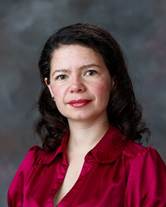Nebraska Experimental Math and Outreach (NEMO) Lab
The mission of the NEMO Lab is to connect undergraduate students at the University of Nebraska-Lincoln with oportunites to get involved in mathematics research and outreach projects outside of the typical classroom setting.
Spring 2024 - Quantum Computing
Project on quantum computation mentored by Dr. Tefjol Pllaha with student participants Donovan Dyk, Helena Holland, Jack Murphy, Nick Starns, Ian Sutton. This project is supported by the UNL Grand Challenges catalyst award entitled Quantum Approaches addressing Global Threats.
Helena Holland wrote an honors thesis Quantum Computing and U.S. Cybersecurity, which earned highest distinction.
Fall 2024 - Quantum Machine Learning
Project on quantum machine learning mentored by Dr. Levi Heath with student participants Ben Gerdes, Caleb Holmbeck, Andrew Maas, Ally Muellner, Reva Long, Hannah Pearce, Bishop Placke, and Thy Tran. This project is supported by the UNL Grand Challenges catalyst award entitled Quantum Approaches addressing Global Threats.
See a presentation by this group.
Spring 2025 - Dynamical Systems
Project on mathematical biology mentored by Prof. Glenn Ledder and graduate student Michael Pieper with student participants James Lynch and Sophia Thompson. The goal was to give a simple model of the immune system by representing it as a system of differential equations.
See a presentation by James Lynch regarding the project.
Spring 2026 - Quantum Information Theory
Project mentored by Dr. Román Aranda. Applications are now open with deadline January 5, 2026. Apply here.
Why Quantum Information? The primary method that banks and governments currently use to communicate securely is called the RSA cryptosystem. RSA relies on the assumption that it is difficult to factor a large number N into its prime factors. In 1994, P. Shor described an algorithm to factor numbers quickly on a “quantum computer,” something that, at the time, did not really exist. Today, such computers do exist but are still under development.
Quantum computing is often presented as a radical departure from classical computation because of the ‘strangeness’ of quantum mechanics. In this seminar, we will attempt to demystify this by introducing concepts from a mathematical perspective. Participants in the seminar will present algorithms in quantum computing leading up to Shor’s factoring algorithm, and discuss the beautiful connections between quantum information and subfields of mathematics such as linear algebra and representation theory.
Who can participate? Math undergraduate students at UNL are eager to learn. The only prerequisite is to have taken the undergraduate linear algebra course (MATH 314).
This is a learning seminar, which means that most meetings will be student-led discussions and presentations. To even the math playing field, the first weeks of the Spring semester will be spent reviewing the background in linear algebra (eigenvalues and eigenvectors), probability theory (distributions), and abstract algebra (groups and rings) needed to understand this topic.
